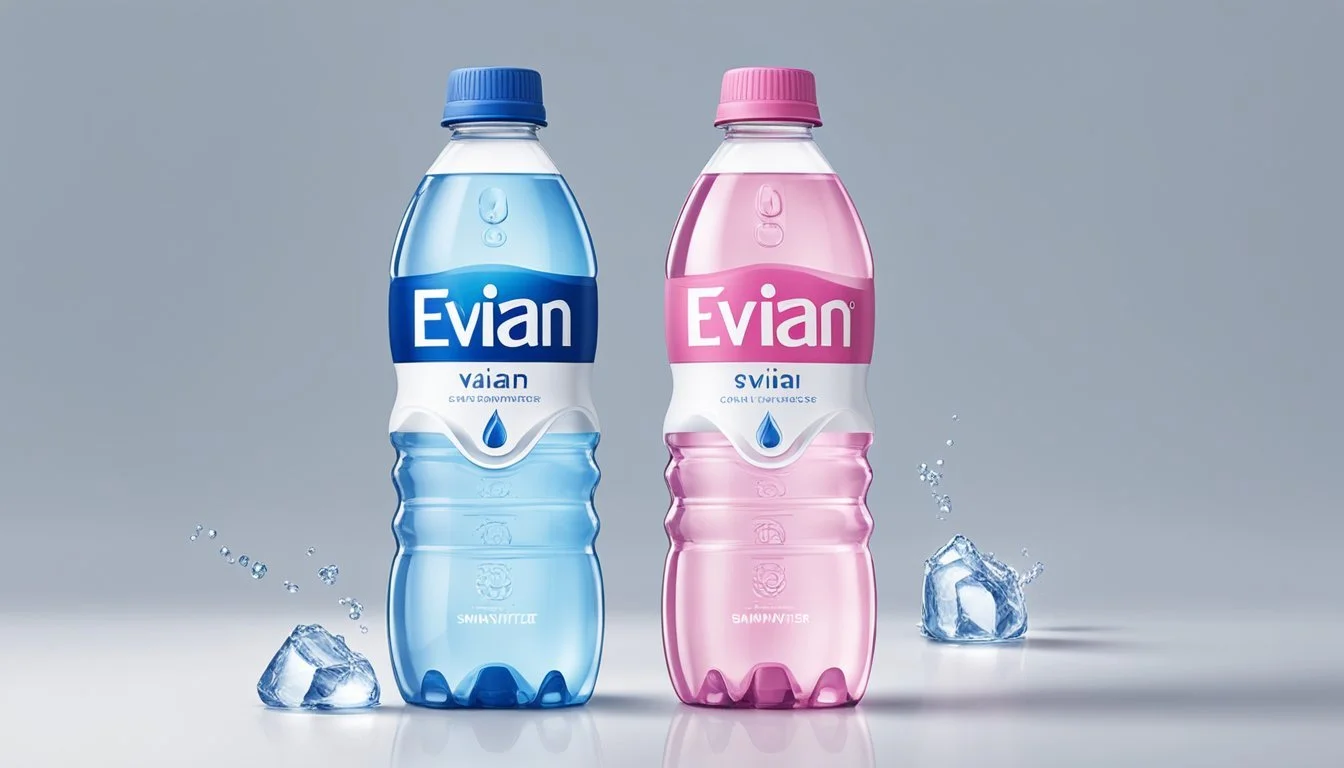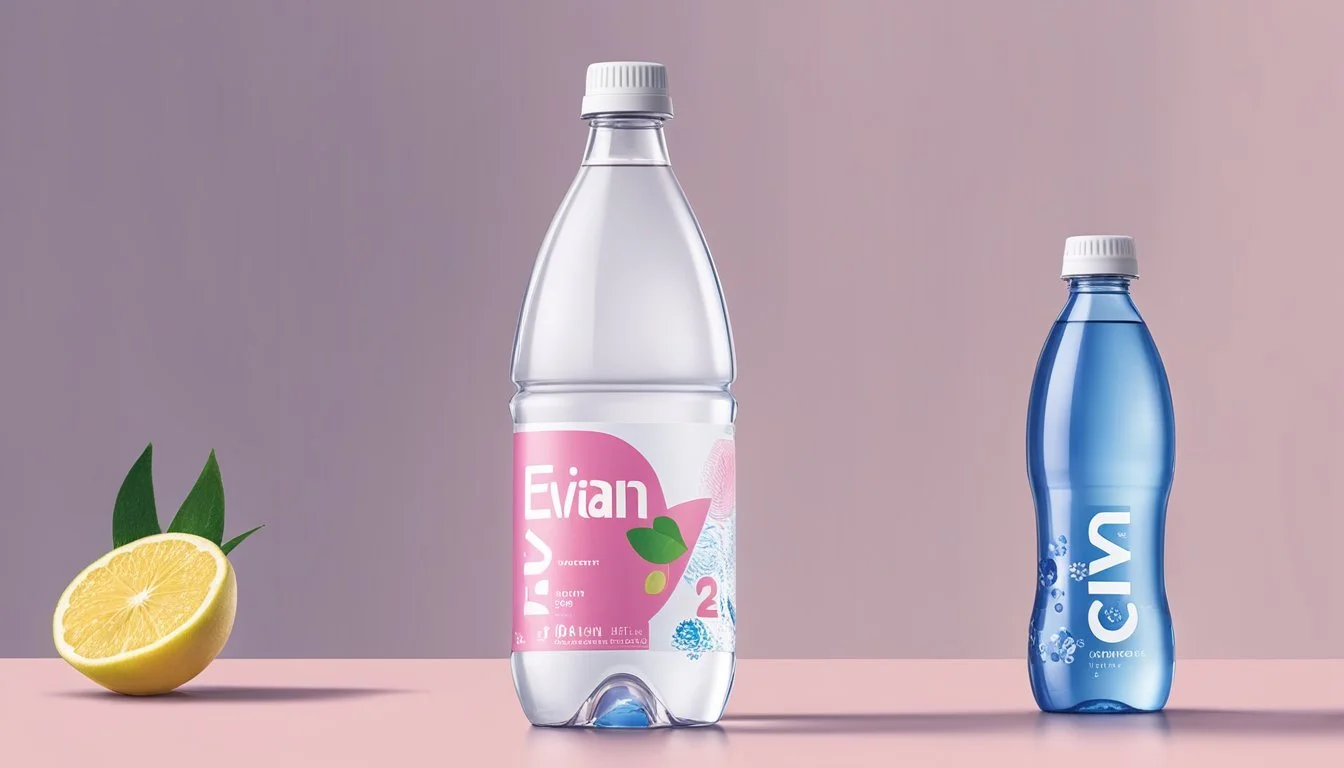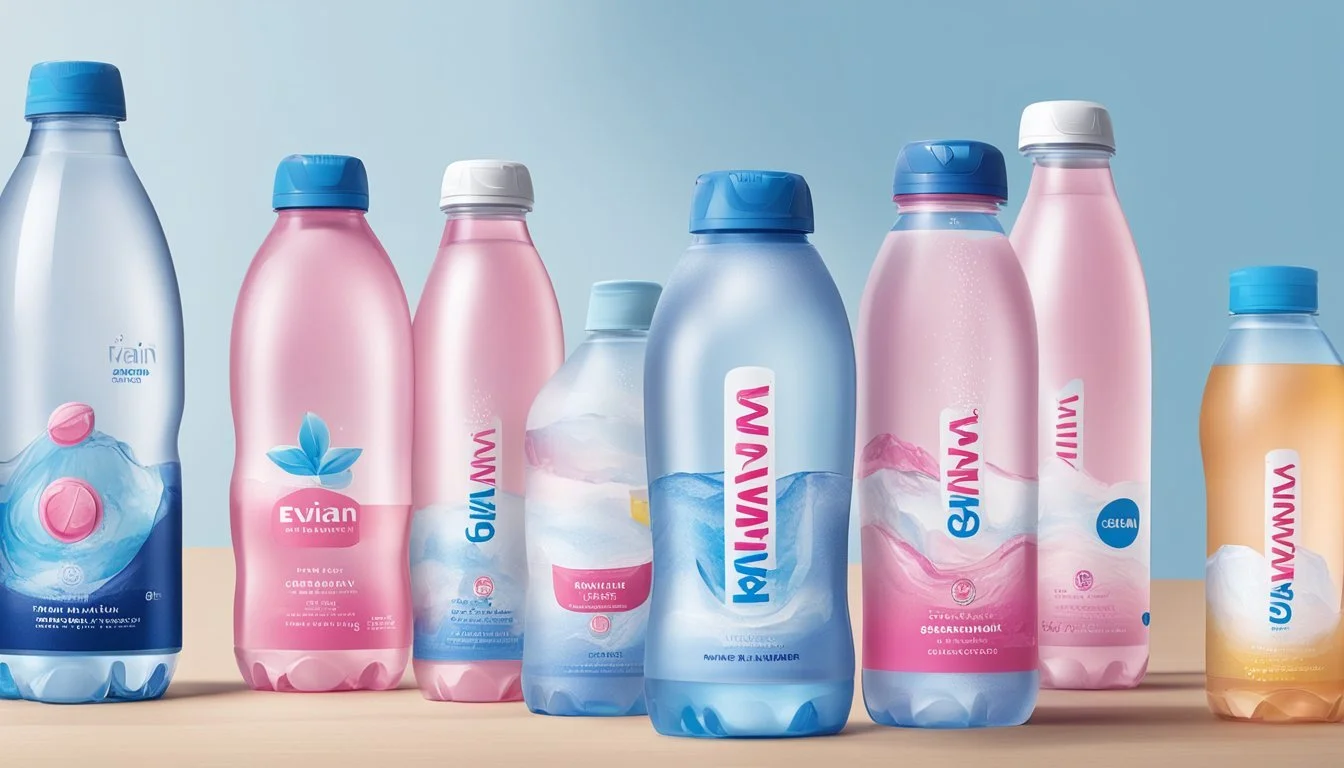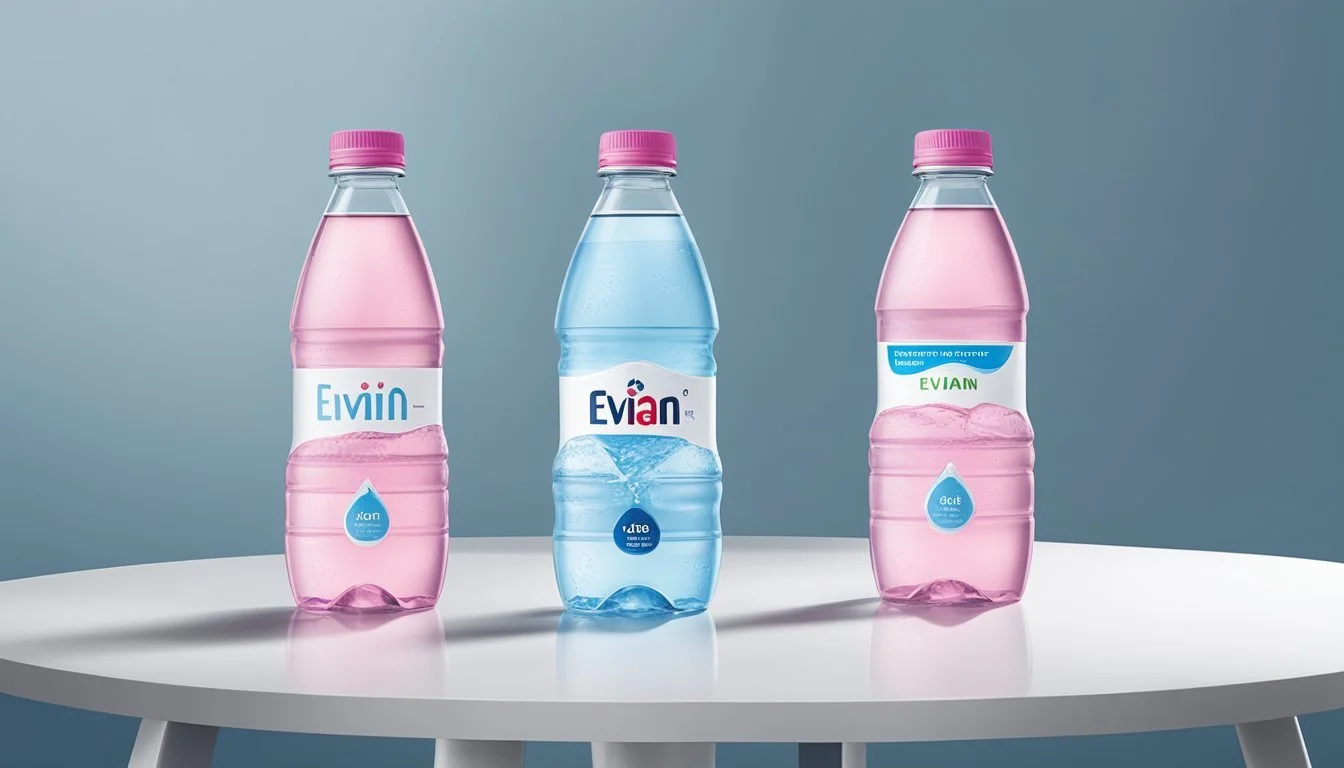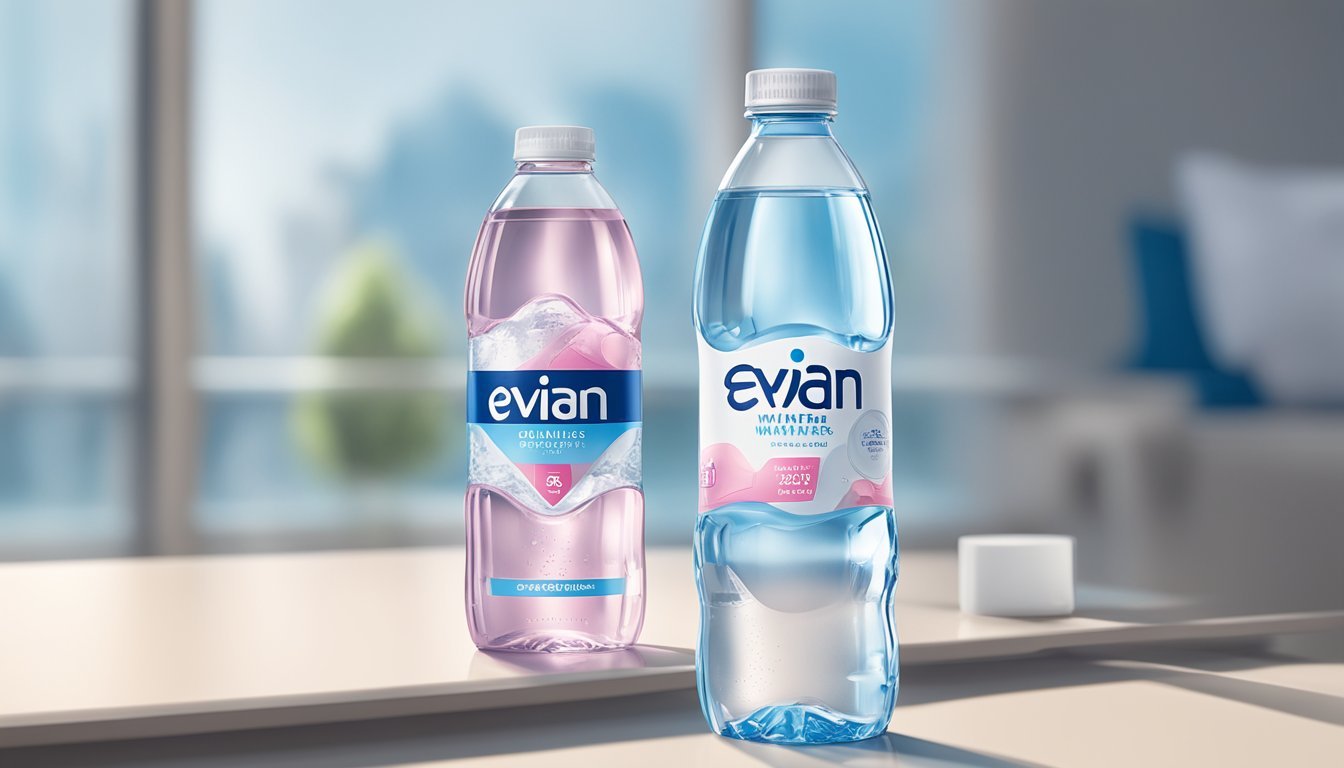Evian vs. Smartwater
Comparative Analysis of Premium Bottled Waters
In the landscape of bottled water, Evian and Smartwater have emerged as leading brands recognized globally for their quality and marketing approaches. Evian, sourced from the French Alps, is renowned for its natural mineral content and a taste that's favored by consumers seeking the essence of purity in their bottled water. With a legacy that dates back to several centuries, Evian has positioned itself as a premium choice, emphasizing its origin and natural filtration process which consumers have come to trust for hydration and taste.
Smartwater, on the other hand, differentiates itself with its unique vapor distillation process and the addition of electrolytes for taste. This brand is not just selling hydration, but also a lifestyle choice, often associated with its sleek packaging and branding that appeals to a health-conscious and style-aware audience. The brand's promise of purity combined with added electrolytes positions Smartwater as a contemporary and innovative option in the bottled water market.
Both brands have developed strong followings and their own narratives in the realm of bottled water. Choosing between Evian and Smartwater often comes down to personal preference regarding taste, brand perception, and the value placed on the sourcing and processing of the water. With bottled water consumption on the rise, understanding the nuances of these popular brands enables consumers to make informed decisions based on factors beyond just quenching thirst.
The Basics of Bottled Water
When evaluating bottled water, it's essential to understand its sources, types, regulatory standards, environmental impacts, specific brand profiles, and the processes by which it's produced, purified, and delivered.
Understanding Water Sources
Bottled waters can originate from various sources, including natural springs such as aquifers and underground springs. Spring water is collected directly from a spring, while mineral water comes from a protected underground source and contains natural minerals. Aquafina, Dasani, and Fiji are a few brands that tap into these sources, each with its unique mineral content.
Types of Bottled Water
There is a range of bottled water types on the market:
Purified Water: Treated through processes like reverse osmosis, filtration, or distillation.
Mineral Water: Contains minerals or trace elements, found in brands like Perrier and Acqua Panna.
Sparkling Water: Infused with carbon dioxide to create bubbles.
Alkaline Water: Has a higher pH level; brands like Essentia specialize in alkaline water.
Bottled Water Regulations
In the United States, the Food and Drug Administration (FDA) regulates bottled water and ensures it meets the minimum safety and quality standards, paralleling the Environmental Protection Agency's (EPA) standards for tap water.
Environmental Impact
Bottled water's environmental footprint is carried most significantly through its packaging and transportation:
Plastic Bottled Water: Often packaged in plastic water bottles, some contain BPA.
Boxed Water: A newer packaging alternative aimed at reducing plastic use.
Ideals of reusable water bottles present an eco-friendly choice for consumers.
Water Brand Profiles
Each brand has unique qualities:
Evian: Sourced from the French Alps, known for its mineral-rich composition.
Glaceau Smartwater: Vapor-distilled with added electrolytes.
Other notable brands include Voss, Mountain Valley, and Poland Spring.
Production and Purification Processes
Water purification typically employs several methods:
Reverse Osmosis: Separates pure water from contaminants.
Ultraviolet Light and Ozone: Disinfect and eliminate pathogens.
Packaging and Transport
Bottled water is distributed in containers like plastic water bottles—many seeking to reduce their environmental impact by using materials like BPA-free plastic, glass, or even aluminum.
Chemical Composition and Health Benefits
Bottled water is often chosen for its purity and mineral content. By examining both Evian and Smartwater, consumers can better understand the chemical composition and health benefits of each. The pH levels, mineral content and electrolytes, and purity in terms of contaminants form the core of this analysis.
pH Levels Explained
Evian: Naturally sourced, Evian water boasts a neutral to slightly alkaline pH level, typically around 7.2. Smartwater: Vapor-distilled for purity, Smartwater is also slightly alkaline with pH levels often advertised to be in the range of neutral (7).
A neutral to slightly alkaline pH in water is generally considered beneficial, as it can help balance the body's overall pH.
Mineral Content and Electrolytes
Evian Water:
Calcium: Essential for bone health.
Magnesium: Crucial for muscle function and reducing fatigue.
Potassium: Necessary for nerve function and hydration.
Smartwater includes added electrolytes like calcium chloride, magnesium chloride, and potassium bicarbonate for taste and hydration benefits.
Mineral Evian Smartwater Calcium Present Added Magnesium Present Added Potassium Present Added
Both brands offer a mix of minerals and electrolytes that are essential for maintaining bodily functions and contributing to hydration.
Purity and Contaminants
Evian boasts water filtered naturally through glacial sand, which is free from PFA chemicals and heavy metals like lead and arsenic. Smartwater is distilled, ensuring removal of impurities, and then has electrolytes added for enhanced taste.
Both companies ensure extensive filtration to reduce possible contaminants, with Evian relying on natural filtration processes and Smartwater on distillation and remineralization. They both meet high purity standards and typically have no significant levels of harmful contaminants.
Comparative Analysis: Evian vs. Smartwater
This section provides a detailed comparison between Evian and Smartwater, two popular bottled water brands, in aspects such as source, composition, hydration, taste, and availability.
Source and Natural Filtration
Evian water originates from the French Alps and undergoes a 15-year natural filtration process through glacial sand, which enriches it with electrolytes and minerals. Smartwater, on the other hand, is distilled, mimicking the hydrological cycle, and then enhanced with electrolytes for taste.
Nutritional Differences
The Total Dissolved Solids (TDS) level, which reflects the mineral content in water, is a key nutritional difference. Evian boasts a higher TDS level due to its journey through mineral-rich volcanic rock, providing calcium, magnesium, and silica. In contrast, Smartwater has a lower TDS level as a result of its vapor distillation process.
Hydration Effectiveness
Both brands aim to offer optimal hydration. Despite different sources and filtration processes, the end product of both Evian and Smartwater is designed to effectively hydrate. The added electrolytes in Smartwater are intended to aid in the body's hydration process.
Taste Profile
Water taste can be subjective, but it is influenced by TDS levels and filtration methods. Evian is often described as smooth and refreshing with a slight mineral flavor due to its natural composition. Smartwater is characterized by its purity and clean taste, with added electrolytes for a distinctive crispness.
Price and Accessibility
Evian and Smartwater are both widely available and can be found in various outlets worldwide. Evian is often priced higher due to its natural sourcing and mineral content. Smartwater is generally more affordable and offers various flavors, expanding its accessibility to consumers seeking flavored hydration options.
Consumer Preferences
In the realm of bottled water, consumer preferences are shaped by several factors, including social media presence, impartial consumer rankings, and the growing importance of sustainability and ethical production methods.
Popularity on Social Media
On social media platforms like Twitter, both Evian and Smartwater have cultivated an influential presence. Evian has leveraged its reputation for high-quality water to maintain a strong image, often associated with luxury and youthfulness. Smartwater, on the other hand, engages consumers with its sleek branding and association with high-profile celebrities. Posts featuring Smartwater tend to emphasize its vapor-distilled purity and added electrolytes, piquing the interest of health-conscious consumers.
Consumer Reports and Rankings
When it comes to consumer reports and rankings, preferences can vary. While specific rankings vary from source to source, reports often reflect consumer trends towards taste and quality. For instance, on platforms like Thrillist, waters such as Icelandic Glacial and Ethos Water have been recognized for their taste, which can indirectly influence consumer sentiment towards comparable premium brands like Evian and Smartwater. Rankings from "worst to best" sites often list Evian as one of the best bottled waters for its mineral content and taste, whereas Smartwater is noted for its purity and unique distillation process.
Sustainability and Ethical Choices
Sustainability and ethical production are becoming increasingly decisive factors for consumers. Those who lean towards environmentally conscious brands may look at companies like Smartwater, which have introduced bottles made from 100% recycled plastic. Similarly, Evian has committed to becoming a carbon neutral brand by 2020 and uses recycled materials in their bottles. Moreover, brands such as Life WTR and Core Hydration are mentioned in discussions of sustainability, indicating a consumer trend towards brands with a reduced ecological footprint.
Practical Tips for Water Consumption
When considering bottled waters like Evian and Smartwater, consumers often weigh factors such as taste and hydration efficacy. This section offers guidance on selecting the most appropriate water, understanding the impacts of packaging on taste, and integrating water consumption seamlessly into one's daily routine.
Choosing the Right Water for You
Every individual's palate and hydration needs are different; thus, taste and hydration levels should guide one’s choice. Smartwater is vapor-distilled with added electrolytes for taste, which may appeal to those preferring a crisp, clean flavor. On the other hand, Evian is sourced from a spring in the French Alps and is naturally mineralized, offering a unique taste profile. For hydrating purposes, any preference is generally adequate so long as the water is clean and safe.
Evian: Naturally mineralized, unique taste.
Smartwater: Vapor-distilled, added electrolytes for enhanced flavor.
Influence of Packaging on Taste
The type of packaging, whether glass bottles or plastic bottles, can affect the taste of water due to potential leaching or chemical interactions. Glass is inert, preserving the water’s flavor and purity, but is heavier and more breakable. Plastic is convenient and lightweight but may alter taste slightly over time, especially if stored in warm conditions or direct sunlight.
Glass Bottles: Maintains purity, potentially better for preserving taste.
Plastic Bottles: Convenient, may impact the taste over prolonged exposure to heat and light.
Integrating Water into Daily Routine
Maintaining hydration is crucial for health, and one can integrate water consumption into their routine by replacing sugary drinks with water during meals or keeping a bottle at hand for sipping throughout the day. Consumers can also supplement their hydration with alternatives like tap water or water-based beverages such as herbal tea or coffee, though these contain caffeine which has a diuretic effect.
Sip throughout the day, replace sugary drinks with water.
Consider alternative sources like tap water, and acknowledge the effects of caffeinated drinks on hydration needs.
Conclusion
When deciding between Evian and Smartwater, consumers are often guided by factors such as taste, purity, brand reputation, and hydration efficacy.
Evian is sourced from a natural spring in France and is categorized as natural artesian water. It is rich in minerals derived from the Alpine sand, which proponents suggest can provide a unique taste and hydration experience. Some consumers are attracted to this brand due to its luxurious image and the associated status it conveys.
On the other hand, Smartwater is distilled from municipal water sources, making it purified water. During its purification process, minerals are added back to enhance the taste. Despite its lack of a natural spring source, Smartwater is designed to mimic the taste and electrolyte balance of natural waters and is often praised for its clean, pure taste.
Feature Evian Smartwater Source Natural spring Municipal Water Type Artesian water Purified water Taste Mineral-rich Clean, pure Hydration Benefit Balanced trace minerals Added electrolytes
Both brands are committed to providing a product that promotes hydration. Although Evian boasts natural sources and minerals, Smartwater's clinically controlled electrolyte-enhanced profile is also effective in maintaining hydration.
Consumers' preferences for one over the other may depend on individual taste and the perceived value of natural versus scientifically enhanced water. Each brand carries a different appeal, with Evian leaning towards natural purity and Smartwater towards scientific purification. The best option for an individual largely depends on personal priorities and beliefs about water sources and processing.
Appendix
This section contains the reference materials and acknowledgments supporting the comparisons between Evian and Smartwater.
References
The Delite article discussed various bottled water brands, including Nestlé Pure Life, and impact factors such as sodium content and additives.
Mashed provided insights into Arrowhead Mountain Spring Water, noting the source and production scale of the water.
Mr Water Geek labeled multiple waters including Evian and Smartwater as not recommendable, with criticisms focusing on marketing tactics and added electrolytes.
Acknowledgments
The author would like to acknowledge the content provided by several online publications which have been instrumental in compiling the comparisons and contrast analyses of Evian and Smartwater bottled waters.

